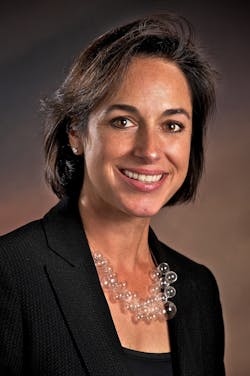Congresswoman Renee Ellmers (R-N.C.) continues to remain committed to easing the Stage 2 meaningful use reporting requirements, writing a letter to Department of Health and Human Services (HHS) Secretary Sylvia Mathews Burwell asking her to shorten the 2015 reporting period for the program.
The Dec. 17 letter from Ellmers, signed by 30 members of Congress, requested that providers receive the flexibility they need to successfully attest to the meaningful use program in 2015 by maintaining a 90-day reporting period. “This is not a delay; it is simply maintaining the current reporting period into 2015,” the letter states.
Currently, providers attesting to Stage 2 of meaningful use in 2015 are required to report for a full-year. Ellmers continues in the letter, “We recognize that the meaningful use program has been a catalyst in the widespread adoption of health information technology across the country. However, we remain convinced that program success hinges on addressing the 2015 reporting period requirements. Specifically, we request that HHS immediately provide a shortened, 90-day electronic health records (EHR) reporting period in 2015, which would give providers much-needed time to safely and effectively implement certified technology and continue their ‘meaningful use’ journey.”
In the letter, the Congresswoman adds that, “We are concerned that a full-year reporting period will complicate the forward trajectory of meaningful use and jeopardize the $25 billion in federal investment made to date.”
In September, HHS published a final rule that provided some relief by allowing hospitals and physicians to use old and current technology to attest for the program in 2014. But Ellmers attests that this rule does not adequately address problems for 2015.
Also in September, Ellmers and Congressman Jim Matheson introduced H.R. 5481—The Flexibility in Health IT Reporting (Flex-IT) Act of 2014. This legislation would ensure that healthcare providers receive the flexibility they need to successfully comply with the meaningful use program. The Flex-IT Act will allow providers to report their health it upgrades in 2015 through a 90-day reporting period as opposed to a full year.
By adjusting the timeline, providers would have the option to choose any three-month quarter for the EHR reporting period in 2015 to qualify for meaningful use. The additional time and flexibility afforded by these modifications will help hundreds of thousands of providers and thousands of hospitals meet Stage 2 requirements in an effective and safe manner, Ellmers said.
In the letter to HHS she writes, “Our constituents remain concerned that the pace and scope of change have outstripped the capacity of our nation’s hospitals and doctors to comply with program requirements. Unfortunately, the final rule, published by your department in the September 4 Federal Register, disregarded recommendations made by the vast majority of healthcare stakeholders to allow a shortened reporting period in 2015. Instead, your department is requiring a full-year, 365-day reporting period of all providers in 2015.”
In response to the letter, College of Healthcare Information Management Executives (CHIME) president and CEO Russell P. Branzell said in a statement that the association is encouraged about the push to take immediate action and shorten the meaningful use reporting period in 2015. In the statement, Branzell added, “Data released today by CMS, indicating that roughly half of the nation’s physicians will receive penalties in 2015, only validate our calls for increased program flexibility. CHIME applauds the leadership Representative Renee Ellmers (R-NC-02) and Representative Jim Matheson (D-UT-4) have shown on this important, bipartisan issue and are pleased their colleagues recognize how essential meaningful use is in the modernization of the nation’s healthcare delivery system.”


